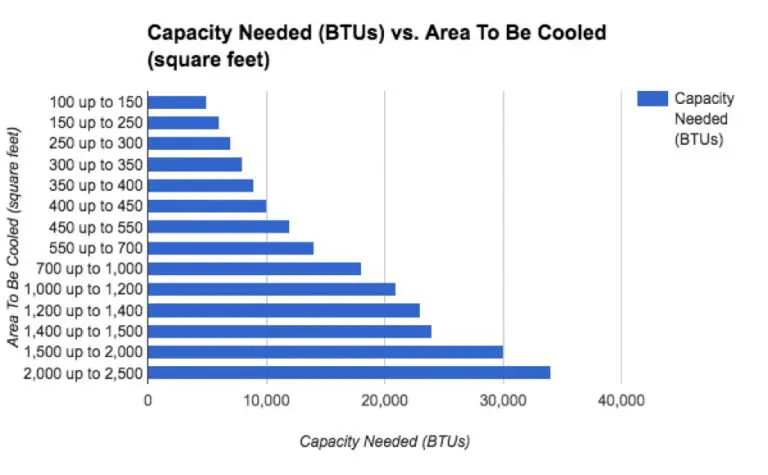
How Many BTUs Does My Air Conditioner Need?
How Many BTUs Does My Air Conditioner Need?
There is no universal air conditioner that would work in every home. Before you go out and purchase an air conditioning system, you need to identify how much power you’ll need to effectively cool your home. Below, we provide tips for figuring out the BTUs you’ll need and how you can best prepare your home for the installation of an air conditioning system.
What is a BTU?
The U.S. Energy Information Association defines a BTU (British Thermal Unit) as
“…a measure of the heat content of fuels. It is the quantity of heat required to raise the temperature of 1 pound of liquid water by 1 degree Fahrenheit at the temperature that water has its greatest density (approximately 39 degrees Fahrenheit).”
For the purpose of cooling systems, it’s essentially a measurement of air conditioning efficiency. A BTU rating measures how well an AC unit can cool a room. Generally, air conditioners start at 5000 BTUs and then increase depending on the type of unit you need for your home. These will also adjust whether you are interested in window air conditioners, central air units, or other cooling options.
How Do I Know How Many BTUs I Need?
Measure your home.
In order to determine the right air conditioner, you will need to know the square footage of each room you need to cool. On average, an air conditioner needs 20 BTU per every square foot in the room you intend to cool.
The chart below is based on data from energystar.gov and will help you determine how many BTUs are necessary based on the square footage in the area of your home you intend to cool:

Consumer Reports suggests that it’s not enough to just measure your home. Instead, you’ll also need to consider some other factors that may require you to reduce or increase the BTU capacity of your cooling unit. These factors include whether or not the room is heavily shaded, if it’s prone to extra sunlight, the amount of people who occupy the room on average, and the type of room where the unit will be installed. For instance, kitchens require much more BTU cooling capacity. The best way to make sure that your new or existing system is sized properly is by having a professional HVAC service company complete a more detailed load calculation. This will take all of the above conditions into account, plus others that might affect the amount of BTU needed to properly cool the space you are concerned about.
Choose the Right Model.
The BTU range for an air conditioning unit will vary based on the model and type. Consider the fact that window and portable air conditioning units will generally cap out at a lower BTU rating than a split ductless unit or central air conditioning systems. These will also likely require more precise measurements from a professional service technician. Make sure to speak with a qualified technician to get their recommendations and identify the best options for your home and budget.
Prepare Before Purchasing & Installing
Your air conditioner will perform much better if you also prepare your home prior to the purchase and installation of your cooling unit. It may be beneficial for you to do a full inspection of your home to ensure there are no air leaks. Consider performing a home energy audit for best results. A qualified home energy specialist can conduct a full evaluation of your current home conditions and will inspect your floors, walls, ceilings, ducts, fireplace, windows and various other areas often susceptible to air leaks.
After you’ve ensured your home is free of any leaks that might reduce your air conditioner’s efficiency, you’ll be ready to purchase your selected system.
Contact a Cooling Professional
Finding the right air conditioner for your home can be a lot of work. In many cases, unless you are a professional HVAC Service Technician or Installer, you’ll want to save the more complicated measurements, suggestions, and installations for the professionals. If you need help along the way, contact us and we can help you with any part of the process.
